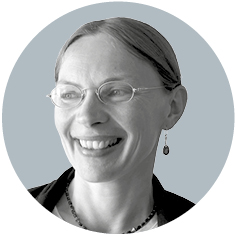Peacekeeping
Women to the front
It is a tough challenge: how to include more women in UN positions, specifically higher-level ones, without risking hiring women based on their gender. If competence is not taken into account, it can be detrimental and actually reinforce stereotypes, warns Pirjo Jukarainen, a senior research fellow at Finland’s Tampere Peace Research Institute. Since 2000, the percentage of female civilian peacekeepers has stayed around 30 %. Eight per cent are in the UN police force and two per cent in the UN military.
A step in the right direction was the establishment of UN gender advisers, though more men as gender advisers would be beneficial, Jukarainen argues. These experts implement and oversee gender issues within UN missions. Joyce Neu, team leader of the 2008 UN Standby Team of Mediation, agrees. She says gender issues concern both sexes, so it shouldn’t be assumed that only women are capable of addressing them.
Women make a difference at the local level too. Luz Méndez, president of the Advisory Board of the National Union of Guatemalan Women (UNAMG), gives her home country as an example. After almost 40 years of civil war, Guatemala is rebuilding. By participating in a civil society platform and by presenting papers to the peace negotiations commission, UNAMG pushed women’s rights in public policy in general and judicial reform in particular. As a result, women’s rights were included in the peace accord, says Méndez.
Such examples in post-conflict areas are important, according to Leymah Gbowee, a Liberian woman who leads the Women Peace and Security Network Africa based in Accra, Ghana. She lived through her country’s civil war, and reiterates that it is the women who are the sustainers of society at the local level. Unlike in Guatemala, she says the Liberian women who spoke up were mostly ignored. At a conference organised by Germany’s Foreign Office in Berlin in March, she said that far too often the UN sends male experts who then decide on their own. She also called for more women in leadership positions.
The UN’s focus on women’s inclusion and rights in peacekeeping was laid out in the UN Security Council Resolution 1325, adopted on 31 October 2000. It calls for several things, including proper prosecution for gender and sex crimes, protection of women and girls in conflict areas and inclusion of more women in decision-making positions and peacekeeping operations. Ten years later, the conference in Berlin agreed that there is still a long way to go. (Andrea Herbst)








